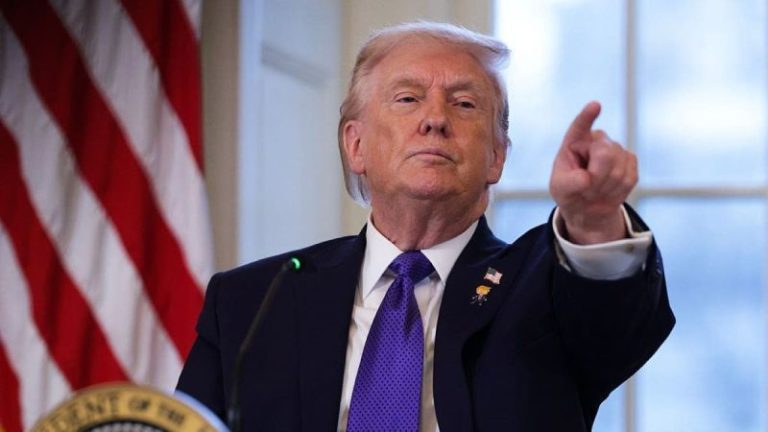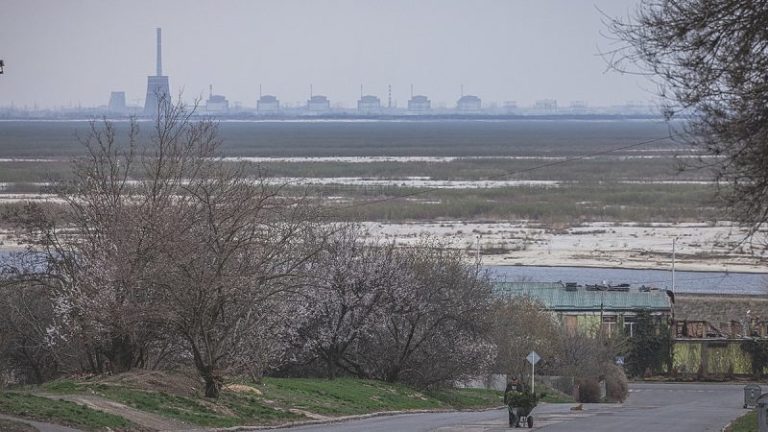The cobalt market staged a dramatic turnaround in 2025, lifting sentiment across equity markets after years of oversupply and near-record price lows.
Early in the year, the Democratic Republic of Congo’s (DRC) decision to suspend cobalt exports sparked a major price rebound, with benchmark metal prices more than doubling as supply tightened and buyers scrambled to secure feedstock.
That supply shock, followed by the DRC’s shift to a quota system limiting exports into 2026, has reshaped market dynamics, prompting analysts to forecast a structural supply deficit next year and underpinning stronger price expectations.
As cobalt prices climbed and inventories tightened, Canadian companies with cobalt exposure drew renewed investor interest, buoyed by the metal’s critical role in EV batteries and energy transition technologies.
All share price and performance data was obtained on January 13, 2026, using TradingView’s stock screener. Companies with market caps above C$10 million at that time were considered.
1. Talon Metals (TSX:TLO)
Yearly gain: 629.41 percent
Market cap: C$725.17 million
Share price: C$0.62
Talon Metals is a base metals company advancing the Tamarack nickel-copper-cobalt project in Central Minnesota, US, through a joint venture with Rio Tinto (ASX:RIO,NYSE:RIO,LSE:RIO). Talon currently holds a 51 percent stake in the project and can earn up to 60 percent. The company also owns the Boulderdash nickel-copper discovery in Michigan, US.
In late March, Talon Metals announced a massive sulfide discovery at its Tamarack project, with an intercept measuring 8.25 meters containing 95 percent sulfide content located deeper than the current Tamarack resource.
In May, a further massive sulfide discovery in the same zone, the thickest discovery yet at the site, drove the company’s share price up significantly, and another in early August did the same.
In the August announcement, Talon shared that it named the discovery zone the Vault zone. At the start of Q4, Talon announced an expanded winter drilling and exploration program at Vault. Shares of Talon rallied to C$0.54 on October 14 following the winter drill news and alongside rising cobalt prices.
On October 20, Talon received a 12 month extension from Rio Tinto subsidiary Kennecott Exploration to submit a feasibility study and a US$10 million payment required to increase its ownership stake in the Tamarack project to 60 percent.
To start 2026, Talon Metals completed its previously announced deal with Lundin Mining (TSX:LUN,OTCPL:LUNMF), acquiring Lundin’s producing Eagle nickel-copper mine and Humboldt mill in Michigan.
The deal combines the assets with Talon’s nearby Boulderdash discovery, allowing the company to process ore from Boulderdash at the Humboldt mill. Additionally, Eagle will provide cash flow to help Talon advance Tamarack.
Under the transaction, Lundin Mining received 275.2 million Talon shares and a royalty of US$1 per metric ton of non-Eagle ore processed at the Humboldt Mill, capped at US$20 million. Lundin now holds a 19.99 percent interest in Talon and it will be able to elect two members to the board.
Between the announcement and closing of the deal, shares of Talon rallied to a one year high of C$0.69 on January 6, 2025.
2. Leading Edge Materials (TSXV:LEM)
Yearly gain: 183.33 percent
Market cap: C$63.74 million
Share price: C$0.25
Leading Edge Materials is developing critical materials projects in Europe. The company’s projects include its wholly owned Woxna graphite mine and Norra Kärr heavy rare earths project, both in Sweden, as well as its 51 percent owned Bihor Sud nickel-cobalt exploration alliance in Romania.
According to its June 2025 presentation, exploration work planned for 2025 at Bihor Sud’s G2 gallery includes mapping and sampling of cobalt-nickel and zinc-lead-silver mineralized zones detected visually and by hand-held XRF. Drilling targeting polymetallic mineralization at the gallery is underway.
On the financial side, Leading Edge announced a C$400,000 non-brokered private placement in June.
According to a June 22 activities update, Leading Edge’s Romanian subsidiary was granted ownership and operational permits for the Avram Iancu mine at Bihor Sud, and the team had begun preliminary investigations of the site.
In its quarterly report released September 19, Leading Edge Materials said it is reassessing its prospects after being granted those permits. The Avram Iancu site has extensive historic underground workings and data indicating copper-rich massive sulfide zones, the statement notes.
A competent person report is in progress to consolidate past exploration and outline next steps, while the company evaluates financing options to advance development.
Shares of Leading Edge registered a one year high of C$0.44 on October 14.
In December, Leading Edge Materials cleared a regulatory milestone at its Norra Kärr rare earths project in Sweden, securing county-level endorsements that advance its 25 year mining lease application to a final decision by the Mining Inspectorate.
The company closed the year by joining EIT Raw Materials as a project partner, strengthening its access to Europe’s leading critical minerals innovation network and potential funding channels.
3. FPX Nickel (TSXV:FPX)
Yearly gain: 161.7 percent
Market cap: C$193.52 million
Share price: C$0.62
FPX Nickel is currently advancing its Decar nickel district in British Columbia, Canada.
The property comprises four key targets, with the Baptiste deposit being the primary focus, alongside the Van target. The company also has three other nickel projects in BC and one in the Yukon, Canada.
In February, FPX released a scoping study for the development of a refinery that would refine awaruite concentrate from Baptiste into battery-grade nickel sulfate and by-products of cobalt carbonate, copper and ammonium sulfate. Annual output is anticipated at 32,000 metric tons of contained nickel and 570 metric tons of contained cobalt.
The results show that the process would result in operating and all-in production costs near the bottom of nickel sulfate cost curve, in part due to by-product credits. Additionally, the carbon intensity of the awaruite refinery would be significantly lower than that of currently used production methods.
On September 4, FPX completed a large-scale mineral processing pilot campaign for its Baptiste nickel project, following three prior successful campaigns. The production run generated bulk samples of awaruite concentrate, which will be provided to prospective partners, including pre-cursor cathode active materials, battery producers and automakers, to assess its suitability as feedstock.
Later in the month, FPX secured an option to earn up to 100 percent of the Advocate nickel property in Newfoundland, which was also named the first designated asset under its generative alliance with the Japan Organization for Metals and Energy Security, supporting a planned exploration program.
At the start of Q4, FPX Nickel signed an exploration agreement with the Takla Nation covering its Klow property in Central British Columbia, establishing a collaborative framework for early-stage work and protocols for environmental protection, employment and more.
Later in the quarter, the company received UL Solutions’ ECOLOGO certification, which verifies sustainable practices in the mineral exploration sector. FPX is the first company in Canada operating outside Québec to do so, according to the release.
FPX opened 2026 by qualifying for an upgrade to the OTCQX Best Market, with its shares now trading under the ticker FPOCF.
Two days later, FPX shares reached a one year high of C$0.69 on January 7, 2026.
4. Battery Mineral Resources (TSXV:BMR)
Yearly gain: 125 percent
Market cap: C$22.15 million
Share price: C$0.18
Battery Mineral Resources is focused on developing into a mid-tier copper producer, and recently restarted mine and mill operations at the Punitaqui Mining Complex in Chile.
In Canada, the company holds the largest land position in Ontario’s historic Cobalt district, where it is exploring high-grade primary cobalt deposits at McAra, Gowganda and Elk Lake. Its portfolio also includes energy services and mineral exploration assets in North America, along with graphite projects in South Korea.
In late October, Battery Mineral Resources said it was evaluating strategic options for its Gowganda silver tailings project, located northeast of Sudbury, Ontario. The project lies in one of the country’s most productive past silver-cobalt districts, and the Gowganda mining camp produced 60 million ounces of silver and 1.3 million pounds of cobalt between 1910 and 1969. Gowganda hosts four former mines and associated tailings historically estimated to contain 2.96 million ounces of silver.
On October 16, Battery Mineral Resources reported strong operational performance at its Punitaqui copper project in Chile, driven by improved underground production and plant optimization. Battery Mineral Resources is also advancing development of additional underground operations at Cinabrio Norte and Dalmacia to support further growth from Punitaqui.
At the start of 2026, Battery Mineral Resources unveiled the decision to sell 100 percent of its interest in the Gowganda silver-cobalt tailings project mining leases to Nord Precious Metals (TSXV:NTH,OTCQB:CCWOF).
“We are pleased to enter into this transaction for our shareholders, providing approximately $6.0 million of value along with a 3.0 percent NSR Royalty,” said Laz Nikeas, CEO of Battery Mineral Resources.
Days later, on January 7 the company launched a non-brokered private placement to raise C$34.89 million. The news items helped push shares of Battery Mineral Resources to a one year high of C$0.20 on January 12.
5. Wheaton Precious Metals (TSX:WPM)
Yearly gain: 122.77 percent
Market cap: C$82.43 billion
Share price: C$181.56
Wheaton Precious Metals is one of the largest gold and silver royalty and streaming companies.
It has investments in 18 operating mines and 28 development projects across four continents, including a cobalt streaming agreement for Vale’s (NYSE:VALE) Voisey’s Bay nickel mine in Newfoundland and Labrador, Canada.
Voisey’s Bay is currently in a transitional phase, shifting from the depleted Ovoid open pit to full underground production.
According to Wheaton’s Q3 release, Voisey’s Bay produced 604,000 pounds of attributable cobalt, a year-over-year increase of 52 percent. This came as the underground mine at Voisey’s Bay continued to ramp up, with full production expected in 2026’s second half.
In November, Wheaton closed its gold stream deal with Carcetti, now Hemlo Mining (TSXV:HMMC), providing US$300 million in upfront funding tied to the Hemlo mine transaction. The deal delivers immediate production and cash flow to Wheaton while anchoring a broader recapitalization that supports the asset’s transition under new ownership.
Wheaton shares hit a one year high of C$182.07 on January 13, 2026, as silver and gold continued to hold at historically high price levels.
FAQs for cobalt
What is cobalt?
Cobalt is a silver-gray metal that is often produced as a by-product of nickel and copper mining. It does not occur as a separate metal anywhere in the world, and must be produced by reductive smelting, or from the metallic ore cobaltite, which is made of cobalt, sulfur and arsenic.
What is cobalt used for?
Historically, cobalt oxides were used to impart a blue pigment to glass, porcelain and paints, hence the still-used cobalt blue paint. The metal is also used to produce superalloys, as cobalt imparts qualities such as corrosion and wear resistance, which are useful in applications such as airplanes, orthopedics and prosthetics.
Today cobalt is most famously used in the rechargeable lithium-ion batteries that run everything from smartphones to EVs.
Where is cobalt mined?
The majority of cobalt production comes out of the DRC, which was responsible for producing 220,000 metric tons of the material in 2024. For perspective, the second largest cobalt-producing country, Indonesia, reported output of 28,000 MT the same year; third place Russia produced 8,700 MT of the material.
As the lithium-ion battery and EV supply chains garner global attention, companies are trying to limit their exposure to cobalt produced from the DRC, which is known for human rights abuses and sometimes child labor in its mining industry.
In response to this trend, many countries with cobalt are attempting to create domestic cobalt and EV supply chains in the hope of attracting companies looking to avoid DRC-sourced cobalt. This can be seen in the up-and-coming battery corridor in Ontario, Canada, as well as in the US-based Idaho cobalt belt.
Securities Disclosure: I, Georgia Williams, hold no direct investment interest in any company mentioned in this article.










